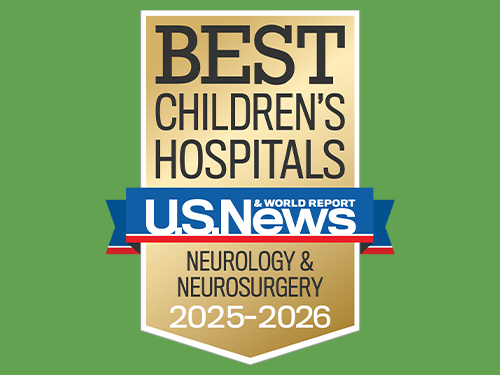What Is Moyamoya Disease?
Moyamoya disease is a vascular condition in which certain arteries in the brain are constricted. The constriction, which occurs in the intracranial portion of the internal carotid arteries and their major branches, causes progressive narrowing of these vessels, eventually resulting in stroke.
Progressive narrowing of the blood vessels in the brain results in reduced blood flow. As time passes, the brain regulates and compensates for this decline in blood flow, sometimes by raising the blood pressure, allowing smaller blood vessels to enlarge. When these mechanisms are insufficient to provide the necessary blood flow to the brain, a stroke occurs.
What Are the Causes and Symptoms of Moyamoya Disease?
Moyamoya has been associated with a variety of conditions, many of which are inflammatory in nature, but evidence for a genetic basis is emerging. The disease is more prevalent among Asians. It occurs in approximately one in 100,000 people with a slightly higher incidence in females than males. It can also occur more commonly in patients with other diseases such as neurofibromatosis type 1, Down’s syndrome, and sickle cell anemia. Patients who have had radiation therapy for tumors of the brain may develop moyamoya disease.
In children, the most common symptoms include weakness, speech difficulty, coordination issues, inability to walk, or visual problems. These conditions may be transient or lasting, but, because they are symptoms of stroke, they demand immediate medical attention.
How Is Moyamoya Disease Diagnosed?
Diagnosis requires imaging studies of the brain. A CT scan can visualize an area or multiple areas of stroke; magnetic resonance imaging (MRI) or magnetic resonance angiography (MRA) is used to identify moyamoya disease.
How Is Moyamoya Disease Treated?
Since the disease is progressive and results in devastating brain injury, making an early diagnosis and establishing a treatment plan is critical. Physicians who specialize in stroke collaborate with pediatric neurosurgeons to evaluate the patient, provide short-term stabilization and prepare for surgical treatment. If comorbid factors are present, such as blood pressure issues, clotting abnormalities, or general medical conditions that may impact the patient’s health, they are addressed prior to surgery.
The surgical strategy for this disease is designed to provide larger-caliber vessels to the brain in order to help increase and sustain flow to the larger vessels and then increase flow to the narrowed vessels. Effective in heart surgery for decades, this ‘downstream’ effect and revascularization of the brain is the treatment of choice for moyamoya disease.
In most circumstances a scalp artery is surgically moved and placed in the brain. This procedure requires harvesting the artery from the scalp, creating an opening in the skull for the artery, finding a suitable artery in the brain as the recipient vessel, and then joining the two together. This “bypass” reroutes the blood from the carotid artery outside the skull to the scalp artery, then to the branch arteries on the surface of the brain. Increased blood flow provided to the brain prevents future strokes.
Contact Us
If you have any questions, use the online tool below to help us connect with you. To refer a patient or schedule an appointment, please contact our clinic using the information below.
- Pediatric Stroke Clinic
UT Professional Building
6410 Fannin, Suite 500
Houston, TX 77030
P: (713) 500-7164 - Pediatric Neurosurgery Clinic
6410 Fannin Street, Suite 950
Houston, TX 77030
P: (832) 325-7234 - UTHealth Houston Gulf State Hemophilia and Thrombophilia Center
6655 Travis Street, Suite 100
Houston, TX 77030
P: (832) 325-7242
To contact Children's Memorial Hermann Hospital, please fill out the form below.
